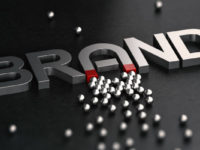Why building a brand is critical for start-ups and SMEs.
Starting, scaling or sustaining a business is tough. If in doubt, ask one of Australia’s two million SME owners how tough it is. It’s the ultimate battle. A constant fight to win new customers, retain talent, maintain cash flow and generally stay afloat. According to the Australia Bureau of Statistics, 60 per cent of businesses don’t make it past year three.
Success is a double-edged sword, bringing imitators and greater competition. Warren Buffett, the most successful investor of our time, understands this better than most. “A truly great business must have an enduring ‘moat’ that protects excellent returns on invested capital. The dynamics of capitalism guarantee that competitors will repeatedly assault any business ‘castle’ that is earning high returns. Therefore, a formidable barrier such as a company’s being the low-cost producer or possessing a powerful worldwide brand is essential for sustained success.”
Building a brand is a defendable growth strategy because it involves creating a connection with customers, your most essential business stakeholders. Thriving brands develop more connections and drive stronger growth.
So, what is a brand? A brand is more than the name on your packaging or website. A brand is a collection of all the elements that you project into the world: the sights, sounds, smells, taglines, products, services and experiences. A brand is a promise to your customers. It’s what raises your product or service above the status of a commodity. It’s what makes it easy for your customers to buy you. You may legally own the trademark for your brand, but the real value sits in the minds of your customers. It’s what can they recall about your brand, product or service in that critical buying moment of truth.
The founders of Four Pillars gin understand the power of building a brand. In five short years, they created a powerhouse brand of the craft gin revolution, doubling in size every year or so. Their undeniable success caught the attention of Lion, who recently purchased a 50 per cent stake in the business.
The promise
Many businesses fail because there is a disconnect between what they offer and what their customers want. The first foundation to building a strong connection requires developing an intimate knowledge about your customers’ deepest motivations and, more importantly, what problems or challenges stop them from reaching their desired state. What problems will they pay you to solve?
“Strong brands provide shortcuts in customers’ minds by building associations between brands and needs.”
A strong brand connects your business solution with your customers’ problems. It’s what you become known for and how customers identify you. It’s a promise. This is who we are, what we offer and why we exist.
The trap many businesses fall into is trying to promise everything to everyone. The strongest brands have the tightest promise. Four Pillars makes great tasting craft gin; they don’t make whisky, bourbon or tequila.
Beyond commodity
Linked to brand promise are the features and benefits of your offer and, importantly, how your customers perceive them. Every business starts life as a commodity in the eyes of the customer. Customers are quick to categorise; it’s how they make sense of the world. You make gin, sell burgers or provide financial services.
The danger of selling a commodity is that price becomes the key determinant for customers’ decision making. How do you make that decision based on more than just price? The key is developing meaningful features that provide motivating benefits. Snickers really satisfies, because it is packed with peanuts.
Make it easy
The biggest challenge facing every business is the battle for customers. Customers are spoilt for choice. Just Google your category and see how many search items you find.
Compounding the challenge is the fact that customers are busy. Adults make approximately 35,000 decisions a day. The reality is that customers are time poor and deciding which brand to buy is just another decision. Brand decisions are made quickly. According to Daniel Kahneman, author of Thinking, Fast and Slow, 97 per cent of decisions are system 1: that is, they are unconscious, automatic and effortless.
The key to business success is ensuring you come to mind faster than the competition, automatically and effortlessly. Strong brands provide shortcuts in customers’ minds by building associations between brands and needs. After a hot day at the beach with friends, what beer brands come to mind? I’m tipping Corona is one of them. Corona owns refreshment, beaches and summer in customers’ minds.
Customer growth
The universal goal for businesses is growth. Ehrenberg-Bass, the world’s leading marketing science institute, has found that the key to sustained growth is increasing the customer base.
Customer growth directly correlates with the pace brands can build memories and expand opportunities for customers to buy. High-growth organisations develop unique capabilities that create memories and presence faster than the competition.
Building a brand is a journey, not a destination. Brands require continual focus, solid foundations and applied force to ensure they win in the market. A disciplined brand strategy is critical for small and medium businesses, start-ups and scale-ups alike. It outlines how you connect your offer with your customers, in a meaningful way and ensuring it is easy to buy. More importantly, it aligns limited resources around what matters: growth. Brand success is business prosperity.
Troy McKinna, Co-Founder, Agents of Spring and Calm & Stormy
This story first appeared in issue 26 of the Inside Small Business quarterly magazine.












